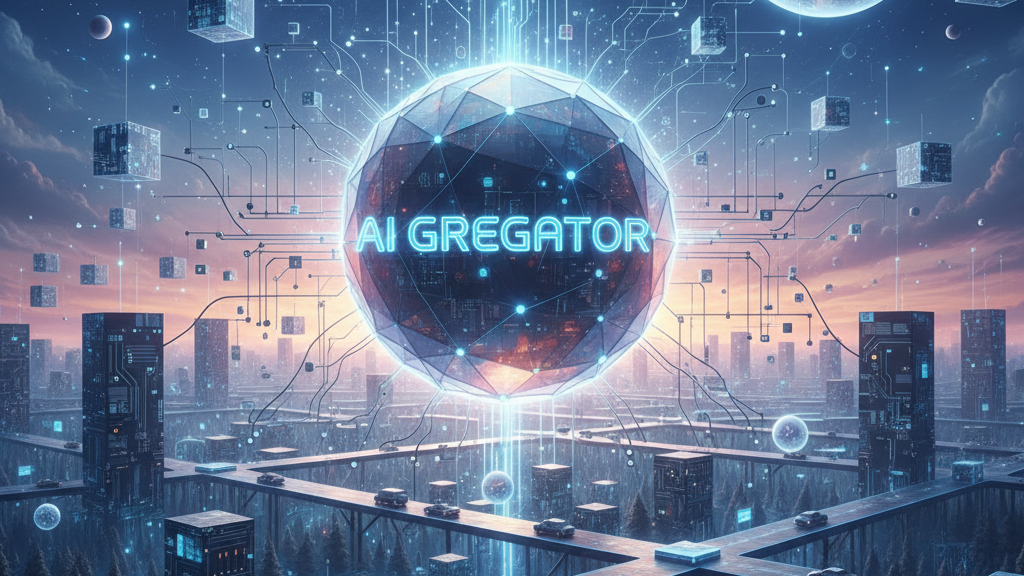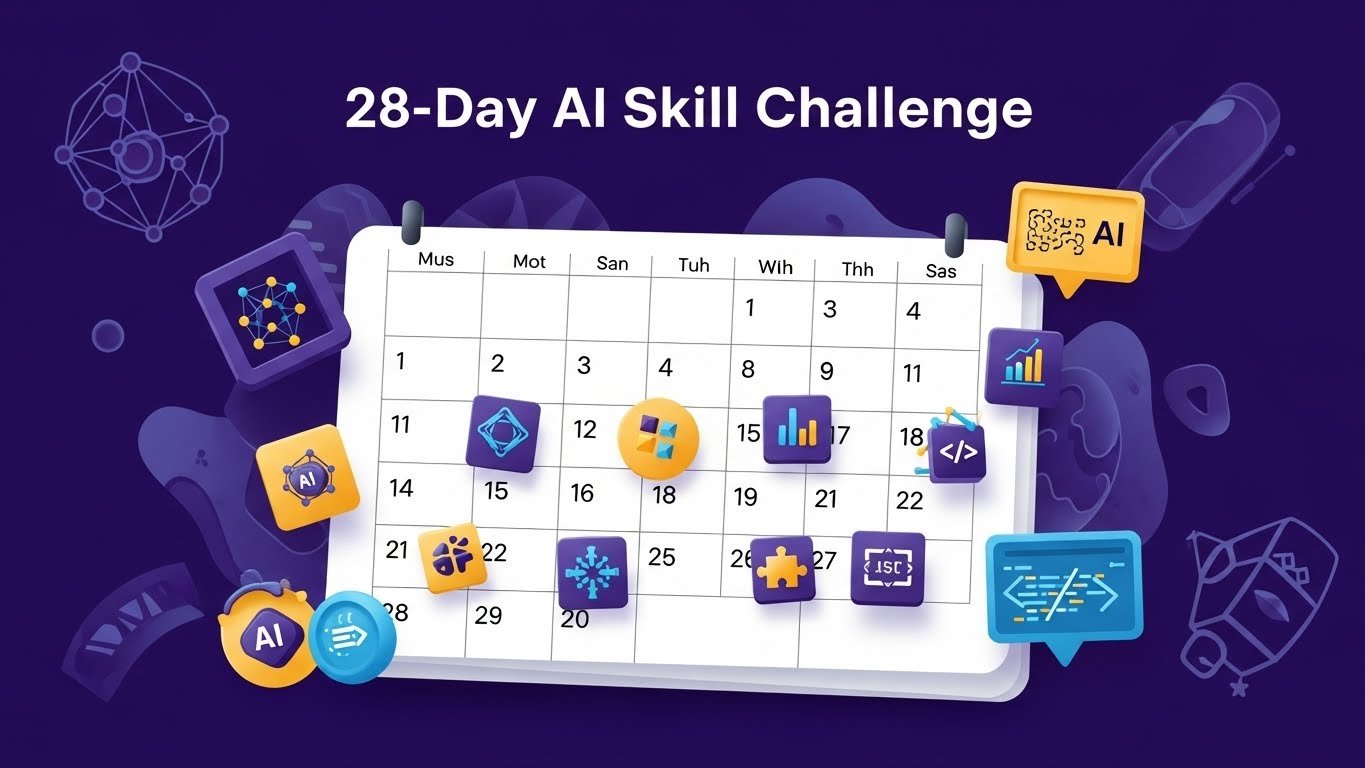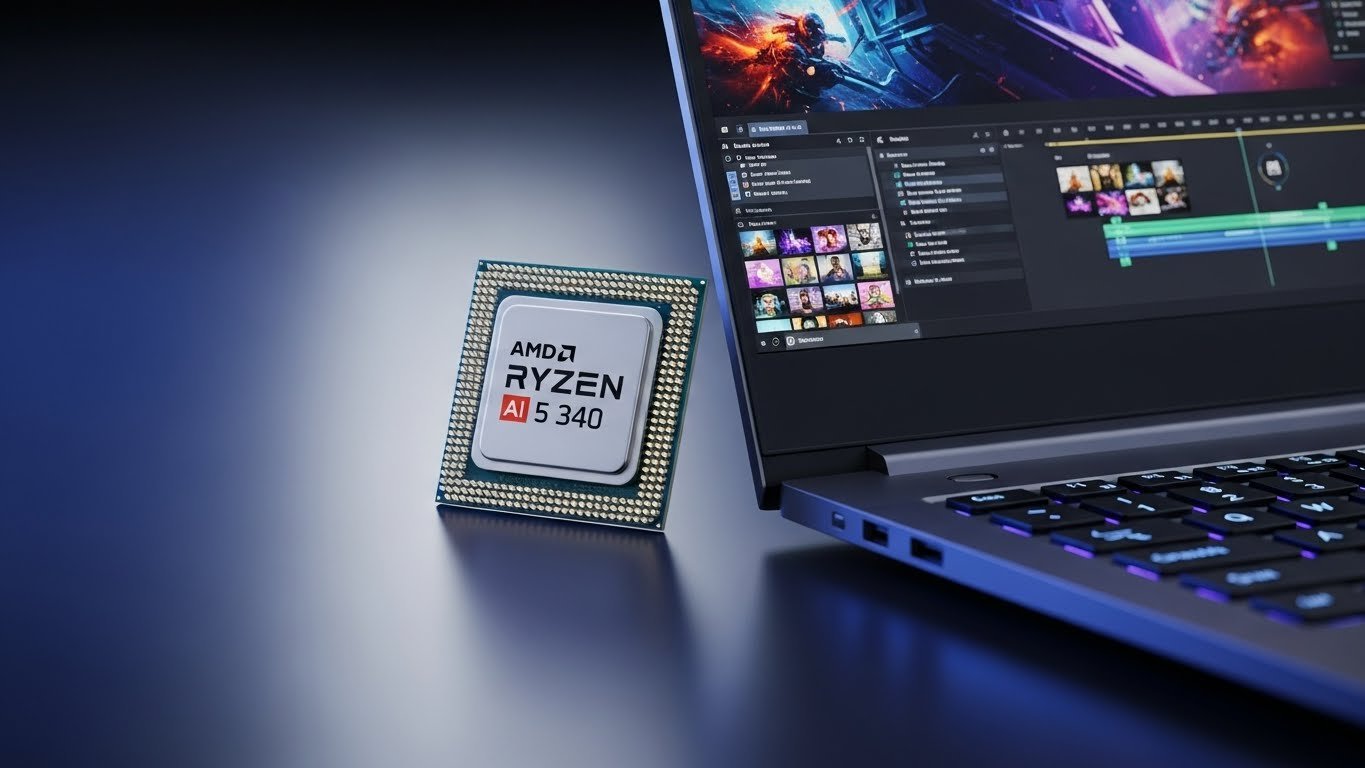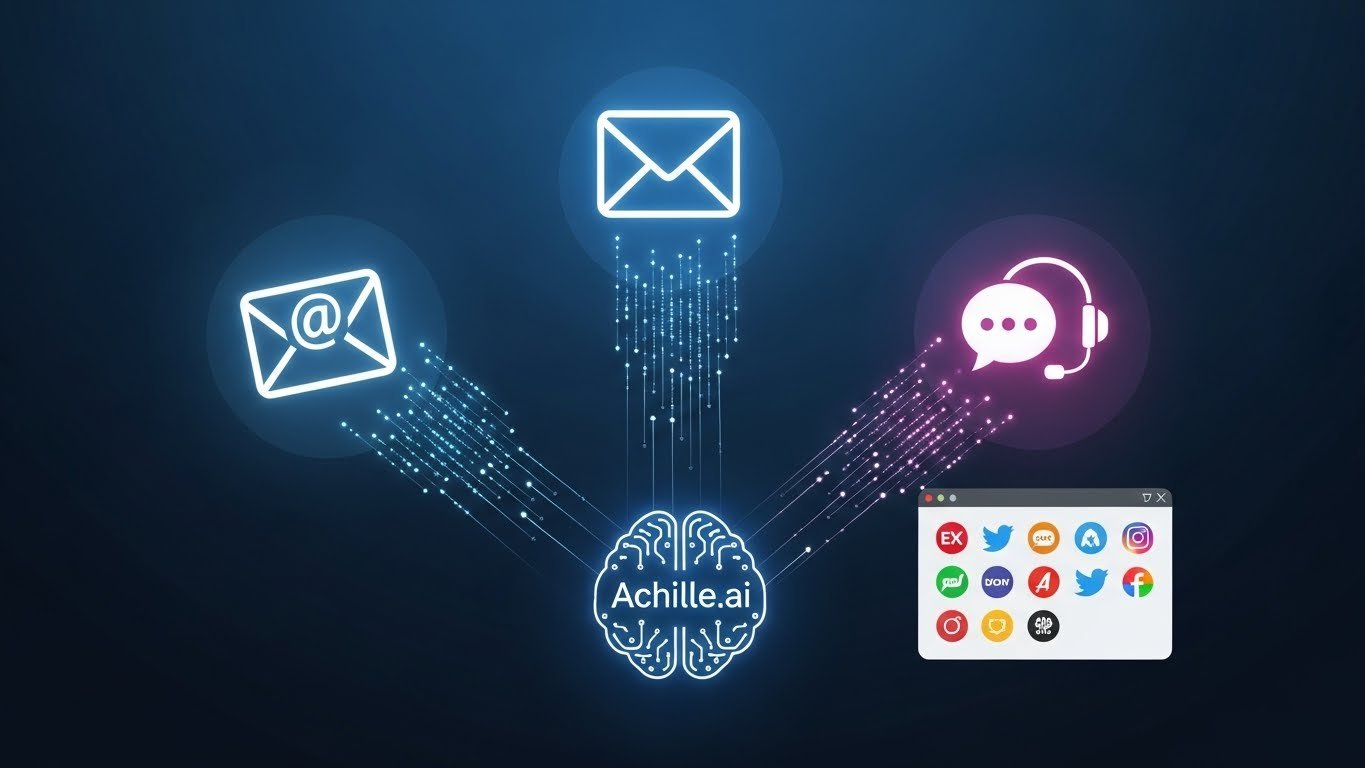The world of artificial intelligence has exploded with countless tools and platforms, making it increasingly challenging for businesses and individuals to navigate the complex landscape. This is where an ai aggregator becomes invaluable. An AI aggregator serves as a centralized hub that consolidates multiple AI models, tools, and services into a single, user-friendly interface, eliminating the need to juggle numerous subscriptions and platforms.
As the AI platform market stands at USD 65.25 billion in 2025 and is forecast to expand to USD 108.96 billion by 2030, the demand for streamlined AI access has never been higher. Whether you’re a content creator, business owner, or AI enthusiast, understanding how AI aggregators work can revolutionize your productivity and decision-making processes.
What is an AI Aggregator?
An ai aggregator functions like a “universal remote” for artificial intelligence services, bringing together various AI models such as ChatGPT, Claude, Gemini, and specialized tools under one roof. Instead of managing separate accounts, subscriptions, and interfaces, users can access all these powerful AI capabilities through a single login and subscription model.
These platforms operate through two primary mechanisms:
Token-Based Resellers: These aggregators purchase AI compute tokens in bulk from various providers and resell them at optimized rates, offering users cost-effective access to multiple AI services.
Hybrid AI Clouds: Some aggregators host multiple AI models on their own infrastructure, providing seamless integration and enhanced performance.
How AI Aggregators Transform Business Operations
Streamlining Discovery and Integration
Research shows that AI aggregators cut discovery time by up to 60% by consolidating diverse AI tools into one user-friendly platform, saving teams hours of trial and error. This dramatic time reduction allows businesses to focus on implementation rather than endless tool evaluation.
Boosting Productivity Through Automation
Case studies demonstrate that companies leveraging AI aggregators see significant competitive advantages. Integration capabilities enable unified dashboards and API workflows, reducing manual syncing and boosting productivity by up to 30% within three months. One notable example includes an e-commerce platform that employed a sophisticated AI aggregator to centralize insights from multiple language models, achieving a 25% increase in customer satisfaction and substantial sales growth.
Cost-Effective Scaling
For small and medium businesses, AI aggregators provide access to premium AI capabilities without the heavy upfront investment typically required for enterprise AI solutions. SMBs save costs and expand capabilities by using aggregators’ bundled subscriptions and freemium tools, enabling measurable growth without financial strain.
Top AI Aggregator Platforms in 2025
Multi-Model AI Platforms
Poe: This popular platform provides seamless access to ChatGPT, Gemini, Claude, and other leading chatbots through a single interface, making it ideal for users who need varied AI perspectives on their queries.
TeamAI: Offering access to Gemini, DeepSeek, and OpenAI models in one unified platform, TeamAI focuses on collaborative AI workflows for teams and organizations.
Magai: Featuring access to 50+ AI applications for the price of one subscription, Magai represents excellent value for power users who need diverse AI capabilities.
AI Tool Discovery Platforms
Futurepedia: Maintains a well-organized directory of over 5,700 AI tools across categories such as marketing, productivity, and design, making it easier for users to discover niche solutions.
TopAI.tools: Offers a vast library with user reviews and detailed comparisons, perfect for quick tool discovery and evaluation.
Toolify.ai: Provides curated selections with in-depth insights across 9,402+ AI tools in 233 categories, helping users find the perfect automation fit for their needs.
Key Benefits of Using AI Aggregators
Enhanced Decision Making
AI aggregators automatically route user queries to the most suitable AI model based on task requirements, cost considerations, or performance metrics. This intelligent routing ensures users always get the best possible output for their specific needs.
Unified Chat History and Data Management
Instead of scattered conversations across multiple platforms, AI aggregators maintain comprehensive chat histories and data in one organized location, improving continuity and reference capability.
No Technical Setup Required
Unlike direct API integrations that require technical expertise, AI aggregators eliminate the need for API keys, complex configurations, or technical setup, making advanced AI accessible to non-technical users.
Real-Time Collaboration
Real-time collaboration features improve communication speed by 70%, helping hybrid and remote teams work seamlessly across functions and time zones. This enhanced collaboration capability is particularly valuable for distributed teams working on AI-powered projects.
Industry Applications and Case Studies
Financial Services Success Story
A leading financial services firm adopted AI aggregator technology to streamline risk assessments and improve client interactions. The implementation resulted in faster loan approvals and a more personalized customer experience, demonstrating how AI-enabled workflows boost productivity by up to 30% while freeing employees to tackle higher-impact strategic tasks.
Manufacturing Efficiency
In manufacturing environments, AI aggregators enable predictive maintenance by analyzing equipment data from multiple sources simultaneously. This approach prevents costly downtime and optimizes resource allocation through intelligent agents that automate repetitive and decision-heavy tasks.
Content Creation and Marketing
Content creators and marketers benefit significantly from AI aggregators by accessing specialized tools for writing, image generation, SEO optimization, and social media management through a single interface. This consolidated approach reduces context switching and maintains workflow continuity.
Security and Compliance Considerations
When selecting an AI aggregator, businesses should prioritize security with role-based access controls and end-to-end encryption to protect sensitive data and ensure compliance with GDPR and CCPA standards. Leading platforms implement robust security measures including:
-
Multi-factor authentication
-
Data encryption in transit and at rest
-
Regular security audits and compliance certifications
-
Granular user permission controls
-
Data residency options for regulated industries
Future Trends in AI Aggregation
Increased Automation and Personalization
The future of AI aggregators points toward enhanced automation capabilities that learn from user preferences and automatically optimize tool selection and workflows. Future trends in AI aggregation indicate increased automation and personalization, further driving business success through adaptive AI ecosystems.
Industry-Specific Solutions
Emerging trends show the development of specialized AI aggregators focused on specific industries such as healthcare, finance, and manufacturing, offering tailored tool collections and compliance features.
Enhanced Integration Capabilities
Next-generation AI aggregators will feature deeper integration with existing business systems, enabling seamless data flow between AI tools and enterprise software platforms.
How to Choose the Right AI Aggregator
Consider Your Use Case
Different aggregators excel in various areas. Content creators might prefer platforms with strong writing and visual AI tools, while businesses may need aggregators focused on analytics and automation capabilities.
Evaluate Pricing Models
Compare subscription costs against individual tool prices to ensure cost-effectiveness. Many aggregators offer tiered pricing with different feature sets and usage limits.
Check Integration Options
Look for intuitive, no-code interfaces with guided onboarding to accelerate adoption across teams with varying technical skills and reduce AI onboarding time by 40%.
Assess Security Features
For business use, ensure the platform meets your organization’s security and compliance requirements.
Conclusion
AI aggregators represent a transformative solution for navigating the complex landscape of artificial intelligence tools and services. By consolidating multiple AI capabilities into unified platforms, these solutions cut discovery time by up to 60% while boosting productivity and reducing costs. As the AI platform market continues its rapid expansion, adopting AI aggregators early provides a flexible, scalable advantage that will drive innovation and productivity well beyond 2025.
Whether you’re a small business looking to leverage AI without massive investment or an enterprise seeking to streamline your AI workflow, the right ai aggregator can significantly enhance your capabilities while simplifying management complexity. The key is selecting a platform that aligns with your specific needs, security requirements, and growth objectives.
FAQs
Q1: What is the difference between an AI aggregator and using individual AI tools?
An AI aggregator provides access to multiple AI models and tools through a single interface and subscription, eliminating the need for separate accounts and reducing costs. Individual tools require separate subscriptions, logins, and management, which can be time-consuming and expensive.
Q2: How much can businesses save by using AI aggregators?
Businesses can reduce AI discovery time by up to 60% and boost productivity by up to 30% within three months of implementation. Additionally, AI deployment time can be cut by up to 30% through streamlined integration processes.
Q3: Are AI aggregators secure for business use?
Yes, reputable AI aggregators implement robust security measures including role-based access controls, end-to-end encryption, and compliance with standards like GDPR and CCPA. However, businesses should evaluate each platform’s specific security features before implementation.
Q4: Which AI aggregator is best for beginners?
Platforms like Poe and Magai offer user-friendly interfaces ideal for beginners, providing access to popular AI models without technical complexity. For tool discovery, Futurepedia and TopAI.tools offer excellent starting points with comprehensive reviews and guides.
Q5: Can AI aggregators replace all individual AI subscriptions?
While AI aggregators provide access to many popular AI tools and models, some specialized or enterprise-specific tools may still require individual subscriptions. However, aggregators can significantly reduce the number of separate subscriptions needed for most use cases.








Leave a Reply